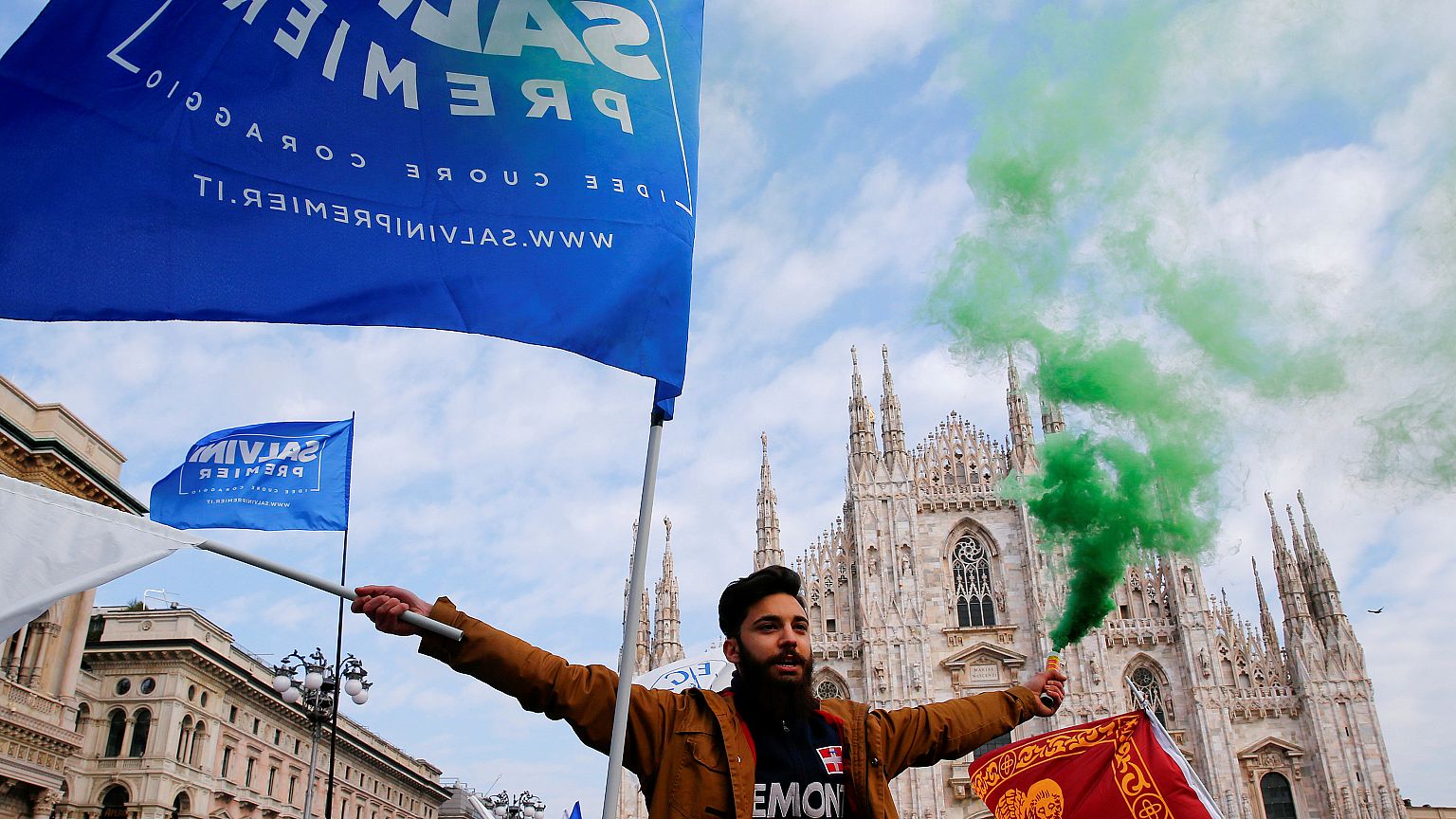Voters' views on immigration have more to do with their values and personality than economic concerns, and they're restructuring the political map of Italy and other Western nations.
A centre-right coalition that includes Matteo Salvini’s Northern League and Silvio Berlusconi’s Forza Italia seems to be on course to form a government following the Italian election on March 4. If the polls are right, this would represent yet another blow to the European centre-left and a further shot in the arm for the populist right. The Northern League’s fortunes have improved in the wake of the 2015 migration crisis as the closing of the Turkey-Greece route has resulted in a significant flow of asylum seekers using the dangerous Central Mediterranean route from Libya to Italy.
Prior to the polling blackout in February, the Northern League was on around 15 percent nationwide despite its historic antagonism toward central and southern Italians. Meanwhile, the mainstream political conversation around immigration has shifted toward restriction, with both Forza Italia and the centre-populist Five Star Movement calling for a repatriation of asylum seekers to Libya and the defence of Italian borders.
Should we be surprised? No. Rising immigration leads to more media coverage and results in the immigration issue climbing up voters’ priority lists, which feeds directly into higher support for the populist right. Work by the European University Institute’s James Dennison and his colleagues shows that, in nine of 10 West European countries, there was a significant correlation between immigration levels and a country’s populist right vote share over time from 2005 to 2016. Nate Breznau from the University of Mannheim finds a 50-97 percent correlation between the share of a country’s foreign-born population and support for populist right parties like the Northern League. The pro-immigration minority of the public doesn’t change its mind, but the majority – who tend to want lower numbers – begin to vote for parties who will address immigration.
Economic considerations aren’t driving public concern over immigration. The academic literature shows a weak link between being poor or unemployed and opposing immigration. And while people say they are mainly concerned with immigrants’ skill levels, when faced with a choice between high-skilled immigration with faster ethnic change and lower-skilled immigration with slower ethnic change, they prioritise slower change.
Populist right voters tend to prefer stability to change, order rather than diversity. These differences are rooted in personality and deeply-held values that grow from a mix of heredity and early life experience. Those who score low in openness, one of the big five personality traits, tend to be more anti-immigration. Those who feel it is more important for children to be “well-mannered” are four times more likely to be Trump or Brexit voters than those who think children should be “considerate.” Meanwhile, the British Election Study reveals that 70 percent of strong supporters of the death penalty in Britain voted Leave while just 25 percent of strong opponents did. In the US, the American National Election Study finds that 69 percent of white Trump voters support the death penalty compared to 46 percent of whites who voted for Republican candidate Mitt Romney in 2012 and 20 percent of white Clinton voters. Differences are even more pronounced between those who see the past as better rather than worse than the present. These value divides, which cut across the left-right economic spectrum, are restructuring the West’s political map.
Why is this happening now? Immigration and rising diversity. These interact with people’s psychological dispositions to activate anti-immigration populism. Those of liberal disposition who prefer change and difference are unaffected by immigration and may even become more liberal in response to the right. This increases polarisation around immigration and identity.
Since right-wing populism is about immigration rather than hostility to democracy and political elites, centre-right parties can move onto the turf of the populist right to woo these voters. In so doing, centrist parties like Berlusconi’s Forza Italia and the Five Star Movement open immigration and Islam to political contestation. This erodes the power of antiracism norms that once marginalised debate on these sensitive topics. Once taboos are breached, it’s extremely difficult to put the genie back in the bottle.
It can be argued that immigration levels and refugee policy need to be openly debated. However, exaggerating the threat that asylum seekers, Africans and Muslims pose to Italy may spur hostility toward them. After three African immigrants were accused of murdering and dismembering an Italian woman, a former Northern League candidate, Luca Traini, conducted a drive-by shooting of sub-Saharan African immigrants, injuring six. Salvini and Berlusconi both qualified their condemnation of Traini by blaming uncontrolled immigration.
Italy, with its low birth-rate, is likely to become increasingly diverse in the coming years. Its poor economy is actually dampening rather than fuelling anti-immigrant populism by keeping economic issues to the fore. Should Italy start to solve its economic woes while immigration remains at its current level, I would expect support for the populist right to begin rising to French or Austrian heights, becoming an endemic feature of the country’s politics.
Eric Kaufmann is a professor of politics at Birkbeck College, University of London.
The views expressed in opinion articles published by Euronews do not represent our editorial position. If you want to contribute to our View section, email ideas to: view@euronews.com















